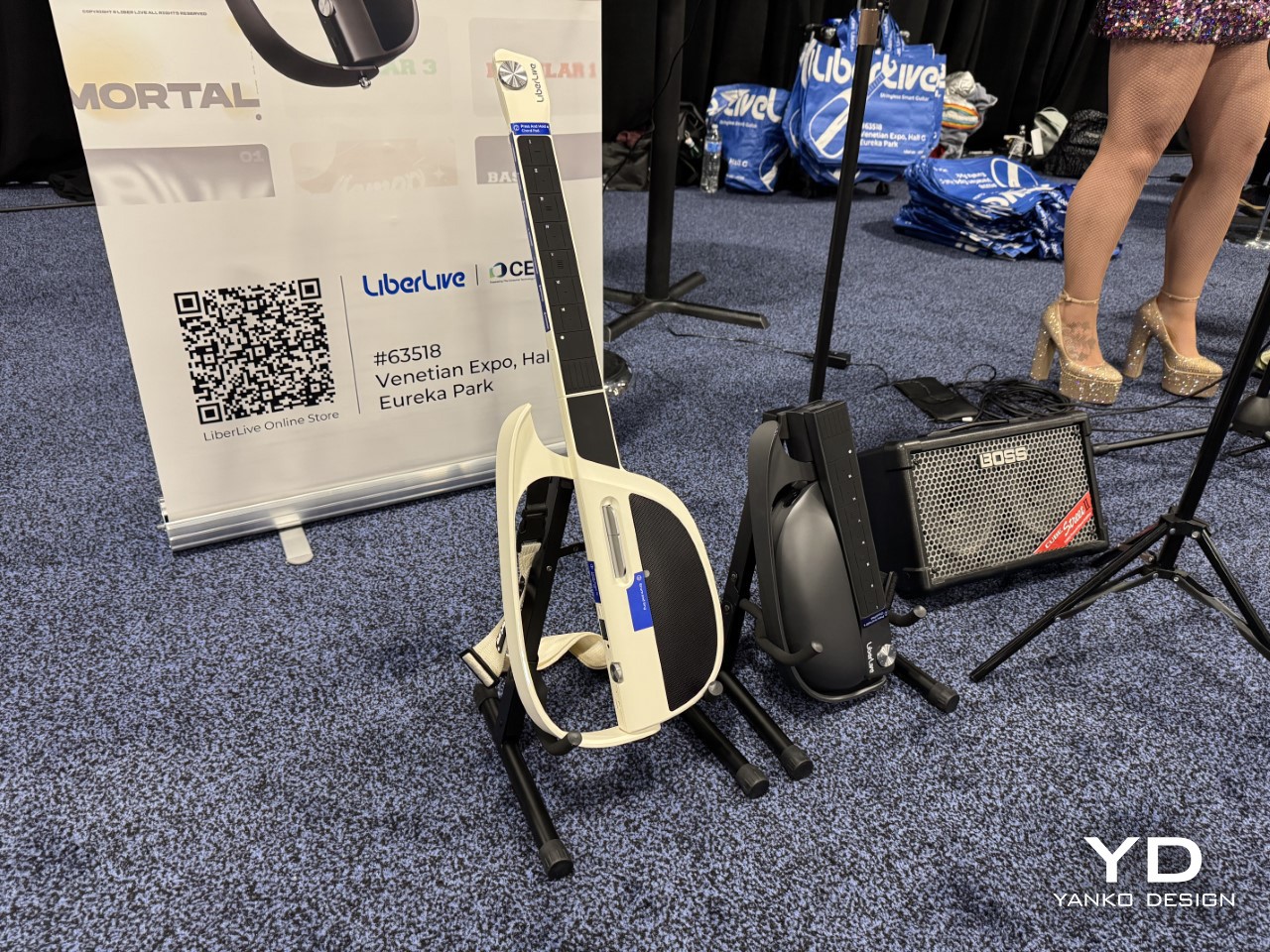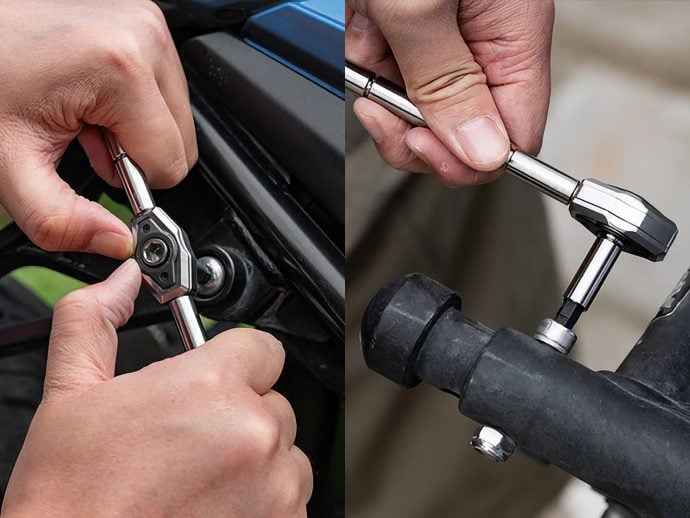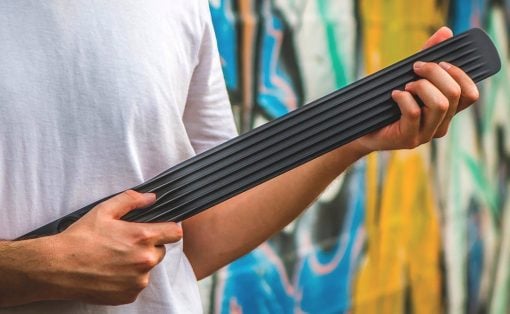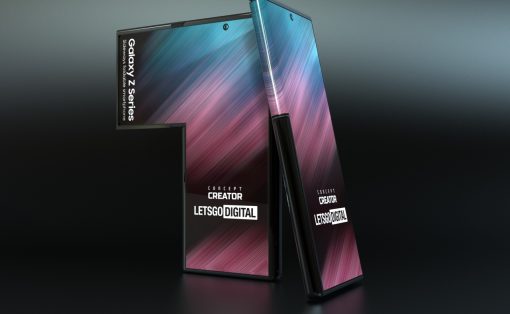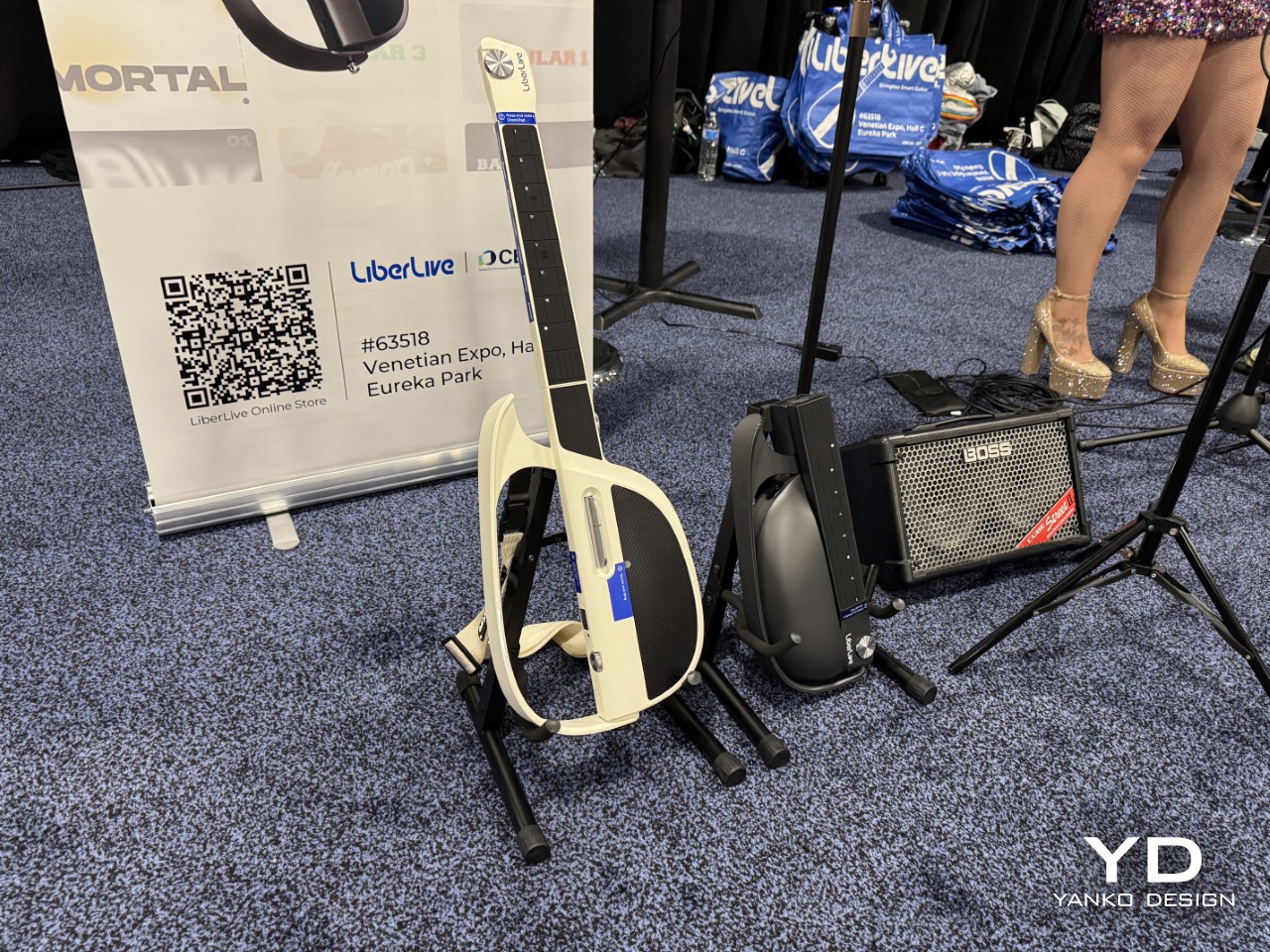
CES Unveiled always has a way of surprising you, and this year, one booth kept pulling me back. LiberLive had set up a tiny stage where a performer worked magic on what looked like the lovechild of a guitar and a spaceship: the C1 Stringless Smart Guitar. No fuss, no heavy marketing spiel—just music. And you know what? It worked. The musician performed Creep by Radiohead, Too Sweet by Hozier, among other popular songs without so much as playing an actual chord. This basically meant being able to play ANY song without the practice or effort, in mere seconds.
The C1 immediately flips your expectations of what a guitar should be. Forget strings; this thing has a smooth, button-laden fretboard that lights up like a runway, guiding your fingers to hit the right spots. Strumming? Replaced by a rocker switch that feels oddly satisfying to use. It’s a strange blend of the tactile and the digital, but watching the performer switch effortlessly between chords, it all starts to make sense.
Designer: LiberLive
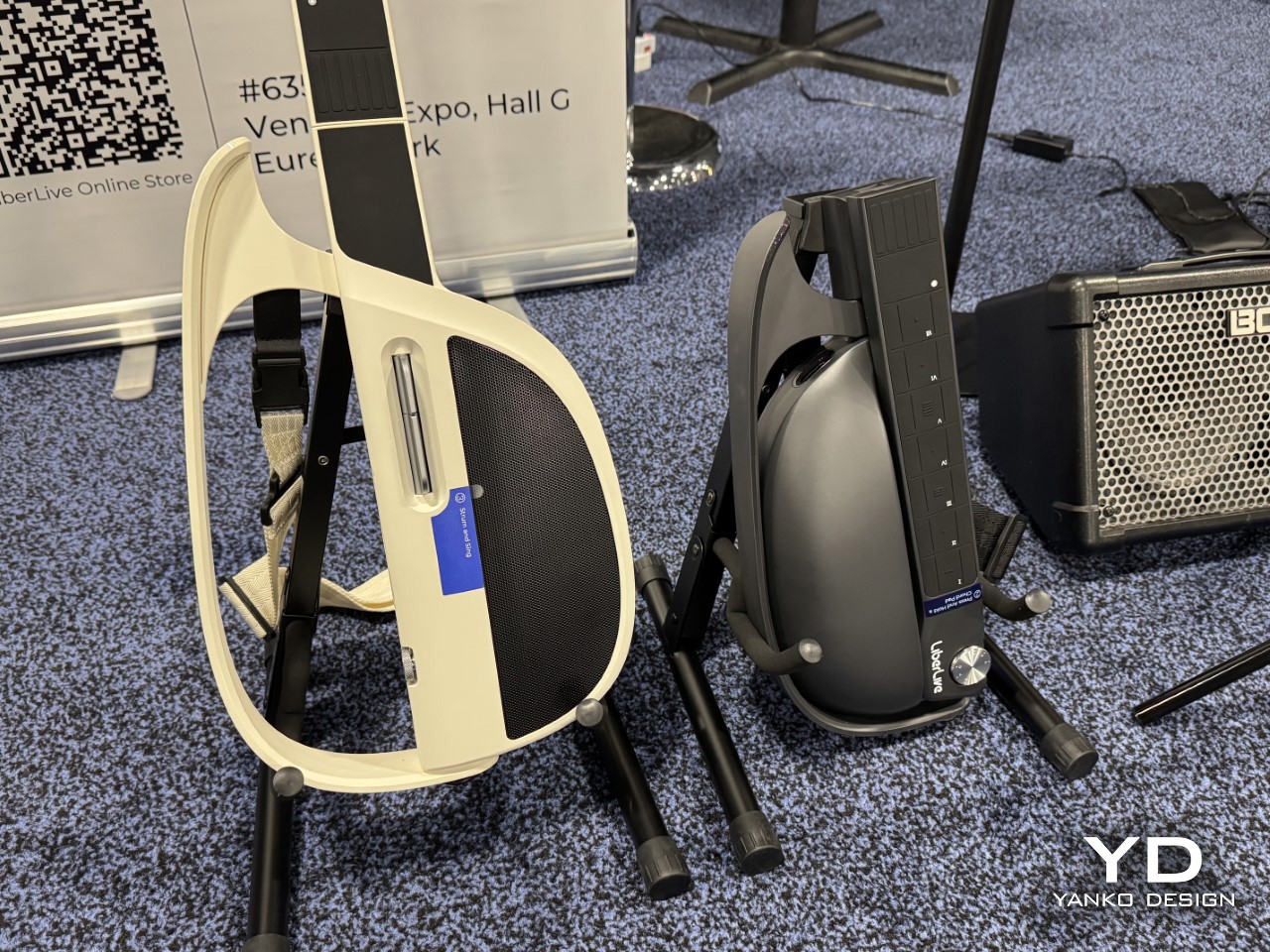
And that fretboard—it’s genius. The illuminated markers don’t just look cool; they act as a built-in cheat sheet. Whether you’re fumbling through your first chords or shredding onstage, those glowing lights are like a trusted friend whispering, “You got this.” LiberLive has managed to turn something as intimidating as learning guitar into something inviting, even playful.
The sound, though—that’s where the C1 really caught me off guard. It doesn’t just fake it; it delivers an acoustic richness that feels alive. LiberLive’s fancy tech (MicroDAW Sampling Synthesis, if you’re into the jargon) mimics the warmth and depth of a traditional guitar surprisingly well. The onboard speaker setup—20W subwoofer and a 5W tweeter—pumps out clear, full-bodied tones that you’d swear were coming from an actual hollow body. And when you’re playing a larger space, you can plug it into external speakers and go big.
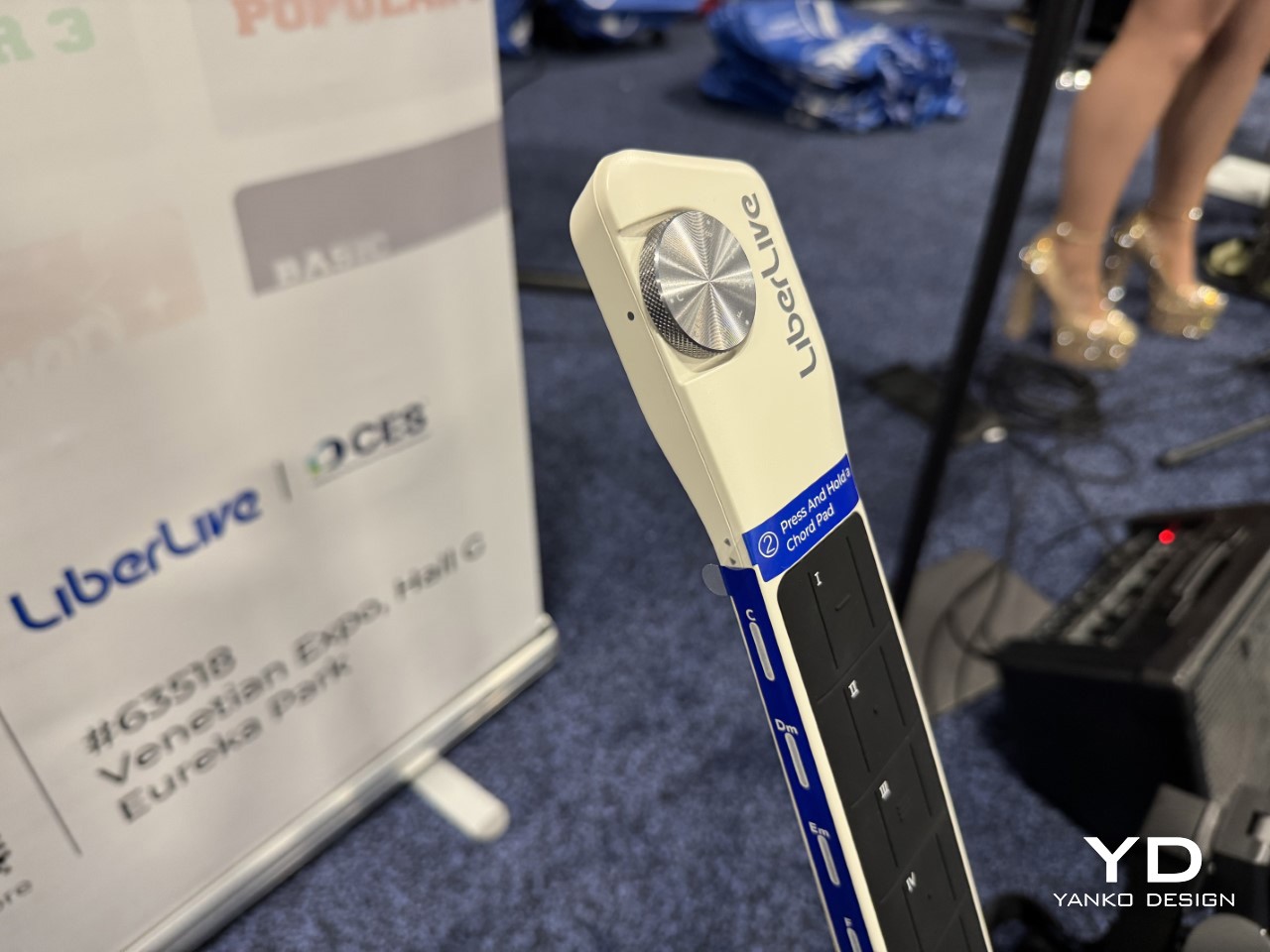
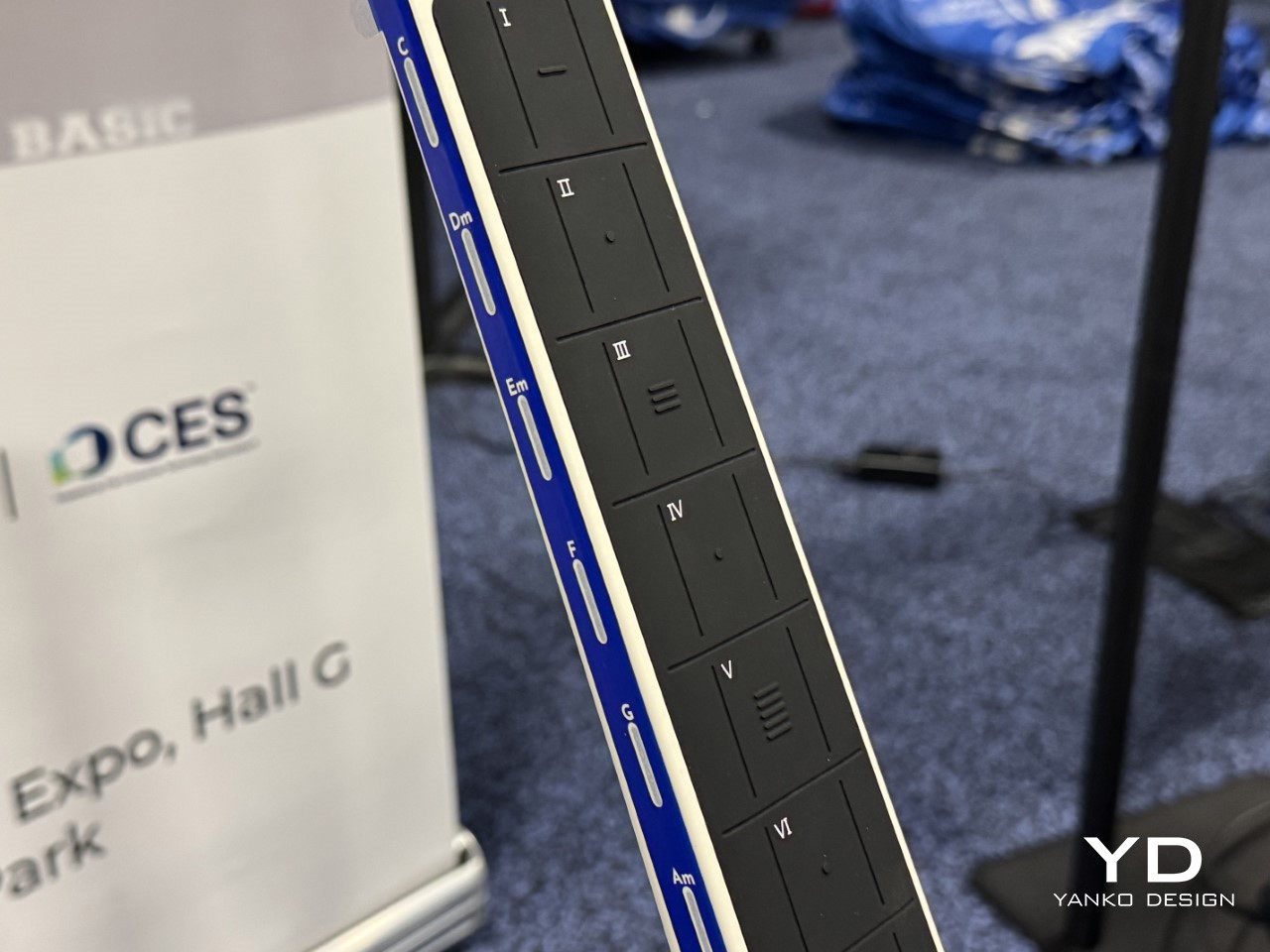
But here’s where things get wild: the LiberLive app. It’s not just some afterthought or glorified tuner. Open it up, and you’ve got access to chord charts that sync with the guitar’s LEDs, a drum machine to keep the rhythm going, and even a bassline generator to fill out your sound. Toss in nearly 100 rhythm styles, and you’ve basically got a band in your back pocket. It’s smart, intuitive, and shockingly fun to mess around with.
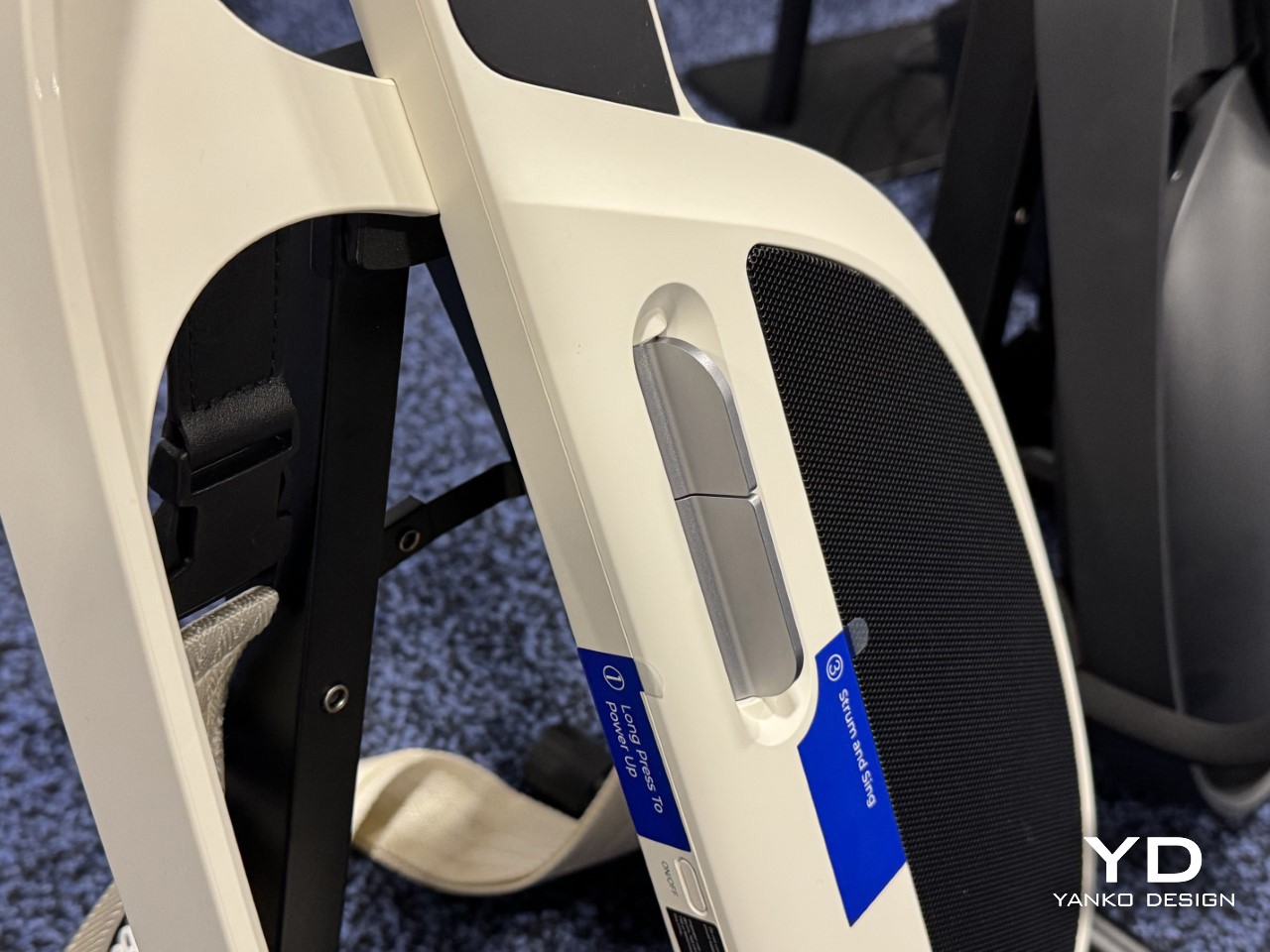
And don’t get me started on the portability. The hollow frame doesn’t just look sleek—it folds down. Let that sink in for a second: you can fold this guitar and toss it into its custom carry bag like it’s no big deal. At just over 4 pounds, it’s lighter than the average bowling ball and far easier to carry. Combine that with a battery life of 6 hours on its built-in speakers (or up to 12 if you’re using external ones), and you’ve got an instrument ready for gigs, street performances, or even just long practice sessions.
Now, does it replace the feel of a traditional guitar? Not really. There’s something about the tactile feedback of strings and the subtle imperfections of a strum that the C1 doesn’t replicate. But here’s the thing—it doesn’t need to. It’s carving its own lane, opening up new ways to play and connect with music, especially for those who might find traditional guitars intimidating or impractical.
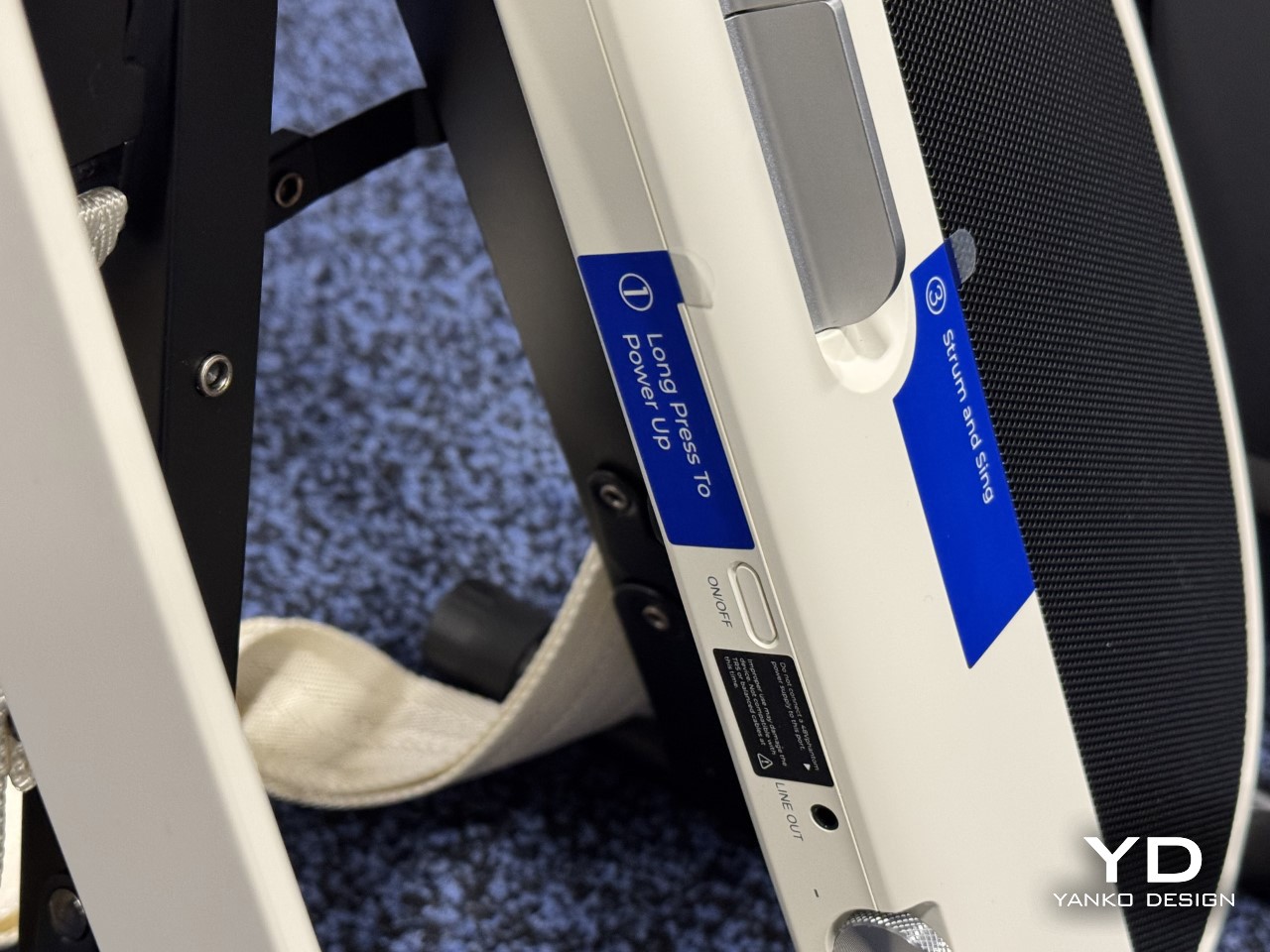
The crowd at LiberLive’s booth seemed to agree. People weren’t just listening; they were leaning in, snapping photos, and quietly debating whether this was the next big thing in music tech. Watching the performer, I couldn’t shake the thought: this guitar isn’t just about innovation for the sake of it. It’s practical, portable, and genuinely fun.
And as I walked away, I couldn’t help but think: we’ve come a long way from campfire acoustics. But if the future of guitar looks and sounds this good, count me in.
